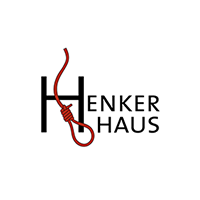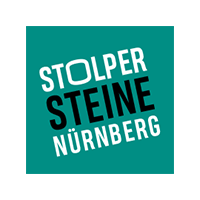Biografie von Hugo und Clementine Mosbacher, verfasst von Judy Vasos
Clemy (Clementine) Adler was born on December 20, 1886 in Mürzzuschlag am Semmering, Austria to Rosa Kronberger and Ignaz Adler. Clemy was the fourth child in the family. She had two older sisters, Mela and Lilly, one older brother Erwin and two younger brothers, Alfons and Fredl.
Her father, Ignaz was a well known leather wholesaler. When Clemy was only five her mother, Rosa died as a result of a fall from a ladder and subsequent miscarriage. Several years after Rosa’s death, Ignaz moved with his six motherless children to Graz, Austria.
Lina Mosbacher, sister to Hugo Mosbacher and the first Jewish woman to obtain a certificate to teach in a high school, was hired to tutor the children. Lina and Ignaz eventually married and had two daughters, Trude and Erna.
Lina’s brothers Hugo and Emil came often from Fürth to visit their sister, Lina, her children and stepchildren. During these visits, Hugo and Emil made quite an impression on Clemy and her sister, Lilly. At one time both Clemy and Lilly were said to be in love with Emil. But it was Hugo who won her heart.
Hugo was born in Fürth, Germany on January 9, 1880 to Karoline Sichel and Sigmund Mosbacher. He had one older brother, Don, four older sisters, Lina, Clara, Frieda and Lenchen and a younger brother, Emil. The father, Sigmund was a teacher in a school for orphans in Fürth.
At the time Hugo was courting Clemy, he was an employee in a firm dealing with old metal. Clemy’s father would not permit the marriage unless Hugo became a partner in the firm. Hugo agreed to this plan and he and Clemy were married on September 3, 1911 in Graz. Hugo had moved to Nürnberg, a short distance from Fürth, and Clemy left her beloved Austria to join him. Five years later, on July 14, 1916 they were blessed with the birth of a daughter who they named Rosi in honor of Rosi’s maternal grandmother, Rosa.
Hugo and Clemy attracted many friends and family to their home and it became “central headquarters for gatherings, family celebrations and overnight stays”. Clemy was more reserved than Hugo but affectionate, loving and caring. She welcomed guests and served them the excellent meals and pastries she was known for.
Hugo was outgoing and friendly — a kind man with a wonderful sense of humor. He could always make people laugh – even make fun of people without being cruel according to Rosi, his daughter. He was generous with his time and believed everyone should have someone to talk and tell their troubles to. When he came home from work, he talked first to the cook, then his sister, Frieda who lived with them and finally to Clemy. She used to say “I have to lock myself in a room to talk to Hugo!”
Rosi was especially devoted to her father and walked him to work and to the barbershop where she waited while he got his daily shave. At home, when he napped, she laid her cheek on his hands. He always made her feel safe. He was not an intellectual person and did not read books but lots of newspapers. He had a great attitude about birthdays and used to say “You don’t need to celebrate your birthday for one day – let it go through the week”.
Despite the love in the home and among family and friends, life in Nuremberg was difficult once Hitler came to power and anti-semitism grew to dangerous levels. In July, 1933 Hugo was among 300 men in Nuremberg picked up by SA storm troopers and forced to cut grass with their teeth on a sports field. Somehow even after this incident, Hugo kept his sense of humor and frequently said, “Well, at least our heads stay on” or “At least we still get mail.”
On November 9, 1938, the night of Broken Glass (Kristallnacht) Hugo was arrested and imprisoned in Dachau, a concentration camp outside München. He was kept in Dachau for forty-five days and when he was released he was dismissed from his twenty-seven-year job by a Nazi decree prohibiting Jews from employment. The temple the family had attended for thirty years had been destroyed by the Nazis.
Kristallnacht marked a major turning point for Jews in Germany. Many, including the Mosbacher family applied for American visas. Rosi was able to leave Germany for England to stay with a family taking in refugees. Hugo and Clemy remained in Nürnberg to wait for their visas. The plan was for all three to reunite in New York.
On April 1, 1939, the Nazis forced Hugo, Clemy and Frieda to leave their apartment on Hallerstrasse and move to a “Jew House” at Fürther Straße 16 under crowded conditions that caused enormous pressure on the family. Their plan to remain in Nürnberg until they received their visas, became increasingly difficult as conditions in Germany worsened.
On February 18, 1940 they left Nürnberg for Holland where they intended to stay briefly with Clemy’s sister, Trude and her family in Amsterdam while they made arrangements to sail to the United States. Their plan was thwarted when they were arrested at Oldenzaal, a Dutch border town known to be helpful to refugees fleeing Nazi persecution. They had crossed the border on foot and entered Holland illegally. Hugo and Clemy were separated and taken into temporary custody for two months in Amsterdam. Once released they booked passage on the S.S. Veendam to sail from Rotterdam to the United States on May 12, 1940. Two days before their scheduled departure, the German Army invaded the Netherlands, took control of the country and canceled all exit visas.
For two years they lived in Amsterdam while they with the help of Rosi and other family members in the United States tried desperately to obtain exit visas for them. All attempts failed and they were arrested in their apartment and sent to Camp Westerbork in Holland. They remained there until February 2, 1943 when they were deported to Auschwitz in cattle cars and murdered immediately upon arrival.



